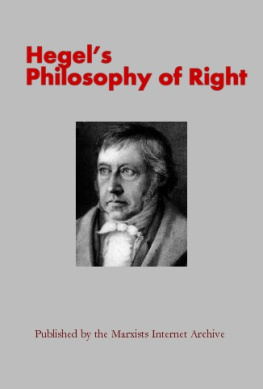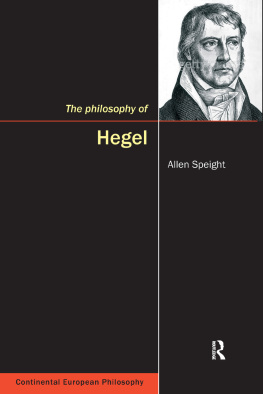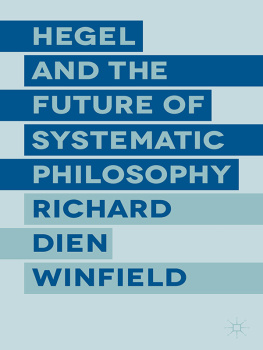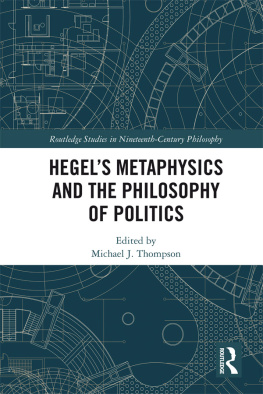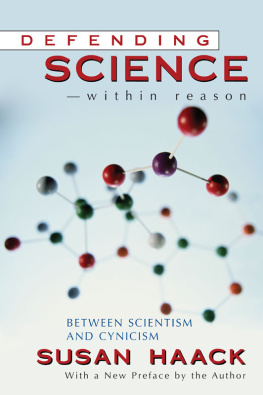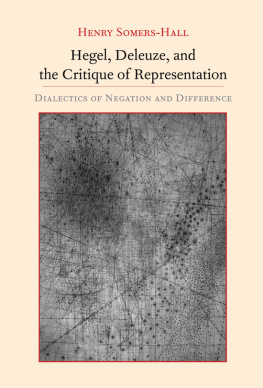Natural Law
G. W. F. Hegel 
Natural Law
The Scientific Ways of Treating Natural Law,
Its Place in Moral Philosophy,
and Its Relation to the Positive Sciences of Law
Translated by T. M. Knox
Introduction by H. B. Acton
Foreword by John R. Silber

Copyright 1975 University of Pennsylvania Press
All rights reserved
Printed in the United States of America on acid-free paper
10 9 8 7 6 5 4 3 2
Published by
University of Pennsylvania Press
Philadelphia, Pennsylvania 19104-4011
Published originally under the title: BER DIE WISSENSCHAFTLICHEN BEHANDLUNGSARTEN DES NATURRECHTS, SEINE STELLE IN DER PRAKTISCHEN PHILOSOPHIE, UND SEIN VERHLTNISS ZU DEN POSITIVEN RECHTSWISSENSCHAFTEN
Library of Congress Catalog Card Number 75-10123
ISBN 0-8122-1083-2
Contents

Foreword

Perhaps no other philosopher poses greater difficulties for his readers or promises greater rewards for diligent study than Hegel. In writing of the dividends to be derived from the supreme thought-treasure of Hegels works, John N. Findlay has rightly praised Hegels stock of invaluable methodological principles by which ones own thought may be guided.
Among these principles is Hegels concern to preserve the unity of thought and reality, his concern to avoid the bifurcation of the abstract and the concrete, the ideal and the actual. Hegels thought exemplifies a singleminded concern to avoid what Whitehead later would call the fallacy of misplaced concreteness. Acutely aware of the philosophical and scientific tendencies to ignore the level of abstraction involved in our description of things, our habit of accepting some reduced and thereby distorted account of the object of thought in lieu of a genuine explanation, Hegel was concerned to comprehendthat is, to transcend a merely manipulative understanding of the world. He was contemptuous of accounts of the world that are merely possible, or that are incomplete and arbitrary descriptions of parts of the world distorted by isolation. He insisted on a philosophical account that could claim to be more than arbitrary, exhaustively concrete, and absolute in its comprehensive interrelatedness.
Nowhere are these central concerns more clearly evidenced in brief scope than in Hegels essay on Natural Law. Appearing at the very beginning of Hegels prolific philosophical life, this essay provides a useful prologue, both in content and in methodology (which are for Hegel quite inseparable), to what follows. In this early essay are readily apparent Hegels demonstration of the incompleteness of both formalism and scientific empiricism and his insistence on a pure empiricism and a complete formalism, sustained by concepts that are genuinely absolute. Hegels intentions stand out in bold relief as he struggles for the movements of thought by which to fulfill them. It is easier, I believe, to understand the full import of Hegels mature formulations of his basic position when one attends their emergence in this brilliant formative work that, despite its brevity, reveals the comprehensiveness characteristic of Hegels most extensive writings.
The reader should find substantial assistance in the following introduction by H. B. Acton, which offers a useful commentary on the historical and philosophical background of the Natural Law and an exposition and analysis of many of its central issues. In section I, Acton places the Natural Law in its immediate historical context and then, in section II, traces Hegels early philosophical development. In section III, Acton examines Hegels treatment of natural law within the context of pure as opposed to scientific empiricism. Hegels struggle with the formalism of Kants theory of morality is discussed in section IV, and is followed in section V by a detailed discussion of the relation of the ethical life and the role of law in civil society that distinguishes Hegels political philosophy from that of Fichte. In section VI, Acton illuminates Hegels organic view of the ethical life and his conception of the individual as simultaneously a part and a whole of a society. A discussion of Hegels view of history concludes the introduction.
Actons introduction should bring the Natural Law within the grasp of the beginning student of Hegel while providing a level of scholarship and insight to interest the mature philosopher. This splendid introduction is, lamentably, the last work of Professor Acton, who died soon after its completion.
The translation, by Sir Malcolm Knox, Professor Emeritus of the University of St. Andrews, brings Hegels ideas faithfully into English. His mastery of Hegels thought has been indispensable to the success of this translation.
John R. Silber
Introduction

I
Hegels essay The Scientific Ways of Treating Natural Law appeared in two consecutive parts (December 1802 and May 1803) of the Kritisches Journal der Philosophie. The Idea of the Absolute is presented as rejecting the opposition between idea and reality, between what should be and what is, and the opposition involved in the conception of an infinite demand. The authors seem not only to be rejecting the philosophy and categories of Common Sense, but also to be hinting at disagreement with Kant and Fichte. Critical Philosophy, as Schelling and Hegel see it, rejects the categories of Common Sense and is no longer satisfied with any polarity of the inner and the outer or of here and beyond. The dualism of Descartes is also attacked and said to be a dualism in the culture of the modern history of our northwestern world, the decline of a whole mode of aging life, of which the quieter transformations of the public life of men and the noisy revolutions in politics and religion are only variegated manifestations.
II
Hegel was born at Stuttgart in Wrttemberg in 1770 and entered the theological college at Tbingen in 1788, the year of publication of Kants Critique of Practical Reason, a book which greatly influenced him. On the outbreak of the French Revolution the next year, Hegel became one of its most vociferous sympathizers at the college. Among his early unpublished writings, written just after his graduation at Tbingen in 1793, are some in which he discusses the nature of a possible religion of the people (Volksreligion). This, like the civic religion advocated and to some degree practiced in France during the Revolution, was to spring from the nature and circumstances of the people instead of being received by them from their masters and teachers. It was to be rational, as advocated by
From 1793 until 1797 Hegel was a house-tutor at Berne in Switzerland. While he was there he wrote two works which remained unpublished until the twentieth century. The first is a Life of Jesus which ends, significantly, with the Crucifixion, and represents Jesus enunciating the Categorical Imperative and recommending an autonomous Kantian morality, although he sometimes refers to the heart where Kant would have referred to reason. Another manuscript of the Berne period is The Positivity of the Christian Religion. Here, Hegel contrasted the positive elements in Christianity, that is, the elements in it which refer to history and revelation and are handed down authoritatively to the believers, with the rational and autonomous religion of Ancient Greece. Jesus, he argued, was unable to secure acceptance for his religion of disinterested rational morality because his disciples, educated in the authoritarian tenets of Judaism, recommended his teachings on his authority instead of on the basis of their inherent rationality. Hegel brings out the contrast by saying that the disciples of Jesus tried to regard the instructions of their Master as authoritative commands, whereas the pupils of Socrates considered themselves his friends and in their own right they were men as great as Socrates.
Next page

